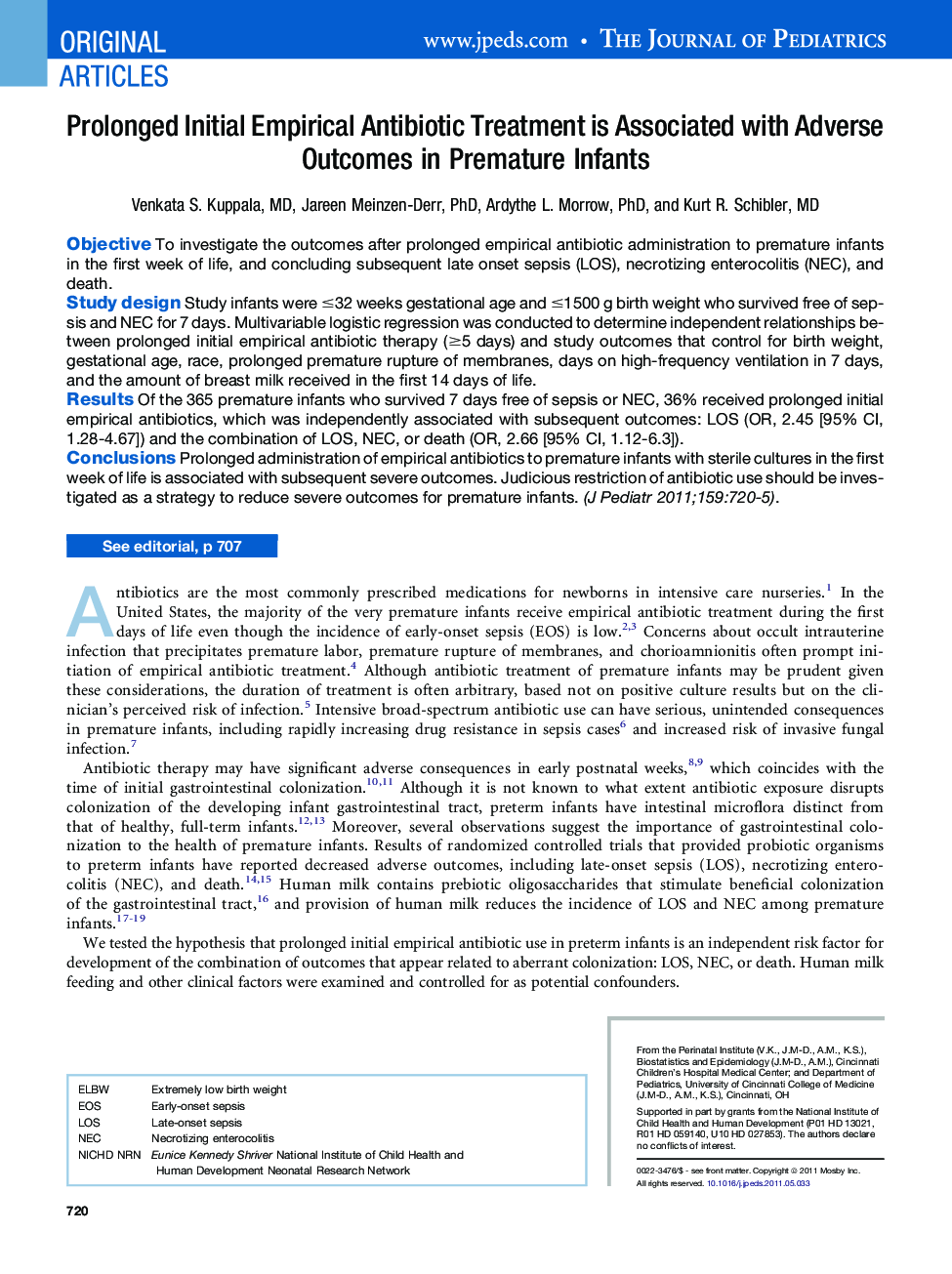| Article ID | Journal | Published Year | Pages | File Type |
|---|---|---|---|---|
| 6224964 | The Journal of Pediatrics | 2011 | 6 Pages |
ObjectiveTo investigate the outcomes after prolonged empirical antibiotic administration to premature infants in the first week of life, and concluding subsequent late onset sepsis (LOS), necrotizing enterocolitis (NEC), and death.Study designStudy infants were â¤32 weeks gestational age and â¤1500 g birth weight who survived free of sepsis and NEC for 7 days. Multivariable logistic regression was conducted to determine independent relationships between prolonged initial empirical antibiotic therapy (â¥5 days) and study outcomes that control for birth weight, gestational age, race, prolonged premature rupture of membranes, days on high-frequency ventilation in 7 days, and the amount of breast milk received in the first 14 days of life.ResultsOf the 365 premature infants who survived 7 days free of sepsis or NEC, 36% received prolonged initial empirical antibiotics, which was independently associated with subsequent outcomes: LOS (OR, 2.45 [95% CI, 1.28-4.67]) and the combination of LOS, NEC, or death (OR, 2.66 [95% CI, 1.12-6.3]).ConclusionsProlonged administration of empirical antibiotics to premature infants with sterile cultures in the first week of life is associated with subsequent severe outcomes. Judicious restriction of antibiotic use should be investigated as a strategy to reduce severe outcomes for premature infants.
